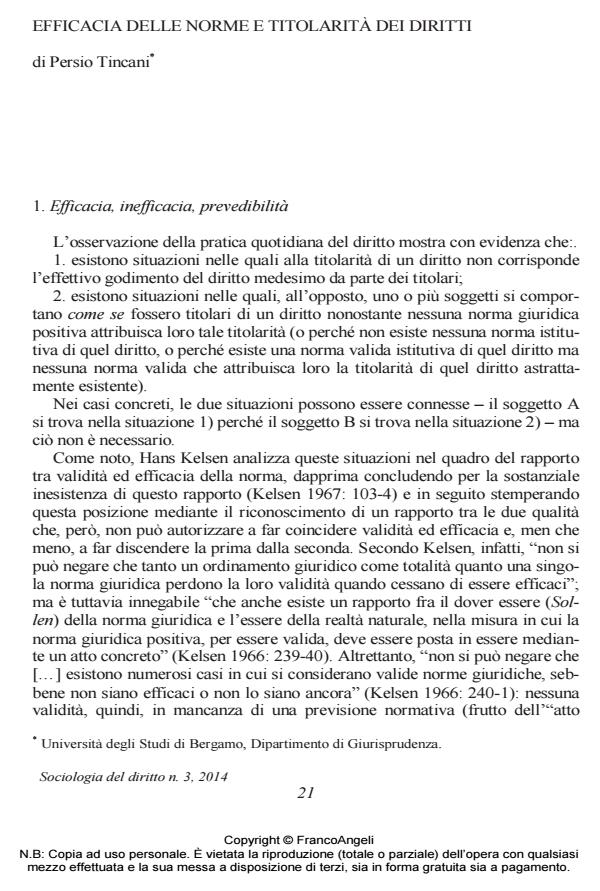The effectiveness of norms and ownership of rights
Journal title SOCIOLOGIA DEL DIRITTO
Author/s Persio Tincani
Publishing Year 2015 Issue 2014/3
Language Italian Pages 26 P. 21-46 File size 156 KB
DOI 10.3280/SD2014-003002
DOI is like a bar code for intellectual property: to have more infomation
click here
Below, you can see the article first page
If you want to buy this article in PDF format, you can do it, following the instructions to buy download credits

FrancoAngeli is member of Publishers International Linking Association, Inc (PILA), a not-for-profit association which run the CrossRef service enabling links to and from online scholarly content.
Law’s certainty depends directly on its predictability, in the sense both of the predictability that consequences predetermined by norms will occur and of the predictability that the predetermined consequences will not occur. The existence of a right is independent of the existence of guarantees, which is, on the contrary, one of the conditions of its certainty, in the sense that its factual effectiveness is predictable. Nevertheless, secondary guarantees in particular can also be ineffective and, as a consequence, formally guaranteed law can become ineffective. The ineffectiveness of secondary guarantees may be caused by a variety of factors: government policies, the policies practised by governance agencies or cultural circumstances (the "case of the anti-Antigone"). This last area, in particular, takes the form of inertia on the part of the owners of guaranteed right, who fail to activate the guarantees provided for protecting certain rights.
Keywords: Validity, Effectiveness, Subjective rights, Guarantees, Legal culture
- The Lighthouse Function of Social Law Giovanni Piglialarmi, pp.599 (ISBN:978-3-031-32821-3)
Persio Tincani, Efficacia delle norme e titolarità dei diritti in "SOCIOLOGIA DEL DIRITTO " 3/2014, pp 21-46, DOI: 10.3280/SD2014-003002